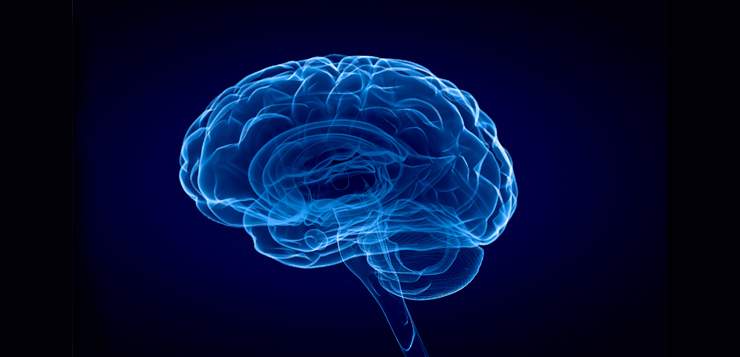People who practice mindfulness say it fundamentally changes how they experience life. For the past 40 years, researchers have been attempting to explain this in biological terms. Studies reveal that mindfulness may reduce anxiety and depression, boost your immune system, help you manage pain, allow you to unhook from unhealthy habits and addictions, soothe insomnia, reduce high blood pressure, and even change the structure and function of your brain in positive ways—perhaps in as little as 8 weeks of practice.
The most respected scientists who study the effects of mindfulness practices emphasize that the research is in its infancy compared to many other fields. It will take years and decades before there is enough peer-reviewed study with active controls and long time frames to establish firm evidence of benefits. That said, the field is emerging and the research looks promising.
The Definition of Mindfulness: Mindfulness is the basic human ability to be fully present, aware of where we are and what we’re doing, and not overly reactive or overwhelmed by what’s going on around us.
The Definition of Meditation: Meditation is exploring, not erasing, the present moment as it is. When we meditate, we venture into the workings of our minds: our sensations (air moving in and out of the body or a noise wafting into the room), our emotions (love this, hate that, crave this, loathe that) and thoughts (did I remember to send that email?).
Mindfulness meditation asks us to suspend judgment of the workings of the mind and unleash our natural curiosity about what is happening in the moment, allowing ourselves to be with each moment with warmth and kindness, to ourselves and to others.
And while this may sound frivolous to some, or even a little weird, but the research suggests that developing this human capacity to observe ourselves and our surroundings non-judgmentally and with compassion has deep and nourishing effects on our well-being that ripple out into our daily lives and communities.
The Foundational Science of Mindfulness-Based Interventions
Mindfulness meditation studies were coming out of Dr. Jon Kabat-Zinn’s Stress Reduction Clinic at UMass Medical Center as early as 1982. Since that time, more than 25,000 people have completed his groundbreaking multi-week program, which came to be known as Mindfulness-Based Stress Reduction, learning to build their capacity to respond to stress, pain, and even chronic illness.
Zinn applied the basic principles of mindfulness meditation to patients in a medical setting and his work developing the MBSR program proved effective in helping alleviate the suffering of chronic and previously debilitating medical conditions such as chronic pain. It also served as fertile ground for a systematic set of research investigations in collaboration with one of the founders of the field of affective neuroscience, Richard Davidson of the University of Wisconsin at Madison. MBSR has become the gold-standard for research into mindfulness-based interventions.
In 1992, Zindel Segal, John Teasdale, and Mark Williams collaborated to create an eight-week program modeled on MBSR. In 2002, the three published Mindfulness-Based Cognitive Therapy for Depression: A New Approach to Preventing Relapse, now a landmark book.
MBCT’s credibility rests firmly on ongoing research. Chief among them are two randomized clinical trials (published in 2000 and 2008 in The Journal of Consulting and Clinical Psychology) indicating MBCT reduces rates of relapse by 50% among patients who suffer from recurrent depression. Recent findings, published in The Lancet, show combining a tapering of medication with MBCT is as effective as an ongoing maintenance dosage of medication.
How Does Mindfulness Affect Health and Well-Being?
When we intentionally place our internal focus of attention in mindfulness practice we induce a unique state of brain activation during the practice. With repetition, this intentionally-created state can become an enduring trait resulting in long-term changes in brain function and structure. This is a fundamental property of neuroplasticity—how the brain changes in response to experience. With mindfulness meditation, the experience is focussing your attention in a particular manner.
A question that is raised regarding the specific features of MBSR is what is the “active ingredient” in its powerful effects. Naturally, the experience of joining with others to reflect on life’s stresses, listen to poetry, and do yoga may each contribute to the program’s scientifically proven effectiveness. But what specific role does meditation itself play in the positive outcomes of the MBSR program? One clue is that those practicing mindfulness meditation during light-treatment for psoriasis revealed four times the speed of healing for the chronic skin condition. And in other studies, long-term improvements were seen and maintained in proportion to the formal reflective meditation time carried out at home in their daily practice. Further research will be needed to verify the repeated studies affirming that long-term improvements are correlated with the mindfulness practice, and are not just the effect of gathering in a reflective way as a group.
Sara Lazar and her colleagues at Massachusetts General Hospital have found that people who have been mindfulness meditators for several decades have structural features in their brains that are proportional to their number of hours of practice. But this finding, too, along with studies of “adepts”—those who have spent often tens of thousands of hours meditating—need to be interpreted with caution as to cause and effect. Are those with differing brain activity and structure simply those who’ve chosen to meditate, or has the meditation actually changed their brains? These questions are being studied as we speak in labs around the world.
MBSR has proven an excellent source of insight into these questions because it enables novices to engage in new practices which can then be identified as the variables that induce the positive changes that follow. What are these changes, whatever their specific causes? Studies of MBSR have consistently found several key developments that demonstrate its effectiveness as a health-promoting activity. These may be key to the “science of mindfulness.”
The Science of Mindfulness
11 research-backed ways mindfulness meditation may improve your health and well-being.
1) Anxiety and depression may decrease after meditation training.
Stress-related health problems like anxiety and depression might be treatable with meditation according to a meta-analysis of 47 studies. Researchers found that going through mindfulness meditation programs (including Mindfulness-Based Stress Reduction, Mindfulness-Based Cognitive Therapy, and other mindfulness meditations) effectively reduces the negative components of psychological stress, with effects comparable to what would be expected from the use of an antidepressant. And a review of nine clinical trials published in JAMA Psychiatry found that when comparing routine treatments for depression, including antidepressants, MBCT reduced rates of relapse for up to 60 weeks. Willem Kuyken and colleagues found MBCT was particularly effective for patients with high levels of depressive symptoms to begin with. Further, this reduction in relapse risk was observed regardless of sex, age, education, or relationship status.
2) Immune function may improve after meditation training.
Meditators who went through an eight-week mindfulness training program had significantly more flu antibodies than their non-meditating peers after they received a flu vaccine, according to a randomized controlled study by Richard A. Davidson and Jon Kabat-Zinn published in Psychosomatic Medicine. After measuring the brain activity of both meditators and non-meditators they found increases in both positive feelings and antibody responses to immune system challenges. At the University of California, Los Angeles, David Cresswell, and his colleagues have found that MBSR improves immune function even in those with HIV. Improved immune system function may help explain the increase in healing found in the psoriasis treatment studies with mindful reflection during treatment.
3) Your brain may be protected from declines due to aging and stress after meditation training.
Muscle control and sensory perception are controlled by regions of the brain known as brain matter, believed to decrease in volume with age. A study by Dr. Eileen Luders at the UCLA School of Medicine, and Nicholas Cherubin at the Centre for Research and Ageing in Australia, showed that the brains of long-term mindfulness practitioners are protected from gray matter atrophy more than non-practitioners. A 2017 study looking at brain function in healthy, older adults suggests meditation may increase attention. In this study, people 55 to 75 years old spent eight weeks practicing either focused breathing meditation or a control activity. Then, they were given the Stroop test—a test that measures attention and emotional control—while having their brains monitored by electroencephalography. Those undergoing breath training had significantly better attention on the Stroop test and more activation in an area of the brain associated with attention than those in the active control group. A systematic review of research to date suggests that mindfulness may mitigate cognitive decline, perhaps due to its effects on memory, attention, processing, and executive functioning. And new research finds that mindfulness instruction may lessen cognitive decline due to mental and emotional stress.
4) Mental clarity and focus improve after meditation training
A recent meta-analysis of 18 studies of eight-week Mindfulness-Based Stress Reduction (MBSR) and Mindfulness-Based Cognitive Therapy (MBCT) found that mindfulness-based programs may support components of cognition. Those include short-term and autobiographical memory, cognitive flexibility, and meta-awareness (e.g. self-awareness) — key skill sets that allow individuals to develop awareness of negative thought patterns in order to develop new ways of thinking and responding to experiences. Other research (from Alan Wallace, Richie Davidson, Amishii Jha) have found significant improvements in attentional regulation in those who have had mindfulness meditation training, such as enhanced focus as revealed in the reduction of the “attentional blink,” or times when new information is not seen because of prolonged attention on the prior stimulus.
5) Your mind may wander less after meditation training
The brain’s default mode network (DMN) is associated with mind-wandering and self-referential processing, and it becomes highly active when we’re not focused on a single task. A study published in Proceedings of the National Academy of Sciences found that the DMN of advanced meditators was not as active, suggesting seasoned practitioners may experience less mind wandering and a resting state closer to a meditative one: able to shift out of ruminative thoughts with more ease and carry out tasks with less distraction.
6) Your heart-health may improve after meditation training
In one study, people with pre-hypertension were randomly assigned to augment their drug treatment with either a course in mindfulness meditation or a program that taught progressive muscle relaxation. Those who learned mindfulness had significantly greater reductions in their systolic and diastolic blood pressure than those who learned progressive muscle relaxation, suggesting that mindfulness could help people at risk for heart disease by bringing blood pressure down. In another study, people with heart disease were randomly assigned to either an online program to help them practice meditation or to a waitlist for the program while undergoing normal treatment for heart disease. Those who took the mindfulness program showed significant improvements on the six-minute walking test (a measure of cardiovascular capacity) and slower heart rates than those in the waitlist group. Mindfulness may also be good for hearts that are already relatively healthy. Research suggests that meditating can increase respiratory sinus arrhythmia, the natural variations in heart rate that happen when we breathe that indicate better heart health and an increased chance of surviving a heart attack.
7) Treatment for mental health is enhanced by mediation training.
Researchers in a wide array of mental health situations have found that adding mindfulness as a fundamental part of their treatment strategies has proven to be essential in treating conditions such as obsessive compulsive disorder, borderline personality disorder, and drug addiction, and is also helpful in the prevention of chronically relapsing depression. Some insight into the possible core mechanisms that enable application to the treatment of a wide range of mental disorders was offered in a study by Norman Farb and colleagues in Toronto. After just the eight-week MBSR program, subjects were able to alter their brain function in a way that confirmed they could distinguish the “narrative chatter” of their baseline states from the ongoing sensory flow of here-and-now experience. This ability to develop discernment—to differentiate our unique streams of awareness—may be a crucial step for disentangling our minds from ruminative thoughts, repetitive destructive emotions, and impulsive and addictive behaviors.
8) Cellular aging may be slowed down with meditation training
Cell aging occurs naturally as cells repeatedly divide over the lifespan and can also be increased by disease or stress. Proteins called telomeres, which are found at the end of chromosomes and serve to protect them from aging, seem to be impacted by mindfulness meditation. Studies suggest that long-time meditators may have greater telomere lengths. In one experimental study, researchers found that breast cancer survivors who went through MBSR preserved the length of their telomeres better than those who were on a waitlist. However, this study also found that general supportive therapies impacted telomere length; so, there may not be something special about MBSR that impacts cell aging. On the other hand, another study with breast cancer survivors found no differences in telomere length after taking an MBSR course; but they did find differences in telomere activity, which is also related to cell aging. In fact, a 2018 review of research ties mindfulness training to increased telomere activity, suggesting it indirectly affects the integrity of the telomeres in our cells. Another study linked loving-kindness meditation with slower biological aging. Perhaps that’s why scientists are at least optimistic about the positive effects of meditation on aging.
9) Self-confidence and leadership may improve after meditation training
A.D. Amar and colleagues at the University of Westminster measured the self-perception of leadership skills among a sample of senior managers in the London area—and then put them through a 12-week secular meditation-training program. Their results, published in the Academy of Management Proceedings, revealed that training significantly enhanced their overall self-confidence, as well as the individual skills like inspiring a shared vision and demonstrating moral intelligence. “However,” conclude the authors, “meditation did not statistically significantly enhance participants’ skills as a role model and enabling others to act”—areas that will need more study in the future.
10) Your mood can be improved with meditation training
Focusing on the timing and pace of breath may help direct attention and boost mood, says a new study in the Journal of Neurophysiology. Scientists at the Feinstein Institute for Medical Research studied the brain’s responses to breathing exercises. Six adults already undergoing EEG monitoring (in which electrodes placed directly onto the brain record electrical activity) performed three tasks: They followed a pattern of normally paced, then faster-paced breathing, cycling between paces eight times. Next, they counted inhales and exhales for short intervals, then reported how many breaths they’d taken. Lastly, they did a focusing task while their breath cycle was monitored. The different breathing styles activated not just the brain stem, or “breathing center,” but also brain regions linked to emotion, attention, and body awareness. Quick breathing stimulated the amygdala, suggesting that rapid breathing may trigger anxiety, anger, or fear. This raises the possibility that targeted breathing strategies may help people to manage thoughts, moods, and experiences.
11) Sleep may improve after meditation training
In a small, NCCIH-funded study, 54 adults with chronic insomnia learned mindfulness-based stress reduction (MBSR), a form of MBSR specially adapted to deal with insomnia (mindfulness-based therapy for insomnia, or MBTI), or a self-monitoring program. Both meditation-based programs aided sleep, with MBTI providing a significantly greater reduction in insomnia severity compared with MBSR
8 Science-Backed Ways Mindfulness Helps us Heal and Thrive
- Burnout: A review of 23 studies looking at the effects of Mindfulness-Based Stress Reduction (MBSR) on employee burnout found that 8 weeks of mindfulness training reduced stress, psychological distress, depression, anxiety, emotional exhaustion and occupational stress, and increased self-compassion, relaxation, sleep quality, and a feeling of personal accomplishment.
- Addiction: Mindfulness-based interventions may be helpful in decreasing craving and substance misuse according a review of several meta-analyses of 34 randomized controlled trials. Researchers suggest that mindfulness may be particularly effective in increasing a person’s awareness of stress, despair, anger, loneliness, and the cravings that can often trigger a relapse.
- Suicide: An examination of a handful of available studies on the impacts of mindfulness-based interventions on suicidal behavior found that mindfulness instruction may be particularly useful for helping individuals cope with stress and difficulties with problem-solving. It can also improve focused attention, and decrease suicidal thoughts; all known risk factors for suicide attempts.
- Bias/harassment: A study of 72 college students revealed that mindfulness training can increase awareness of one’s underlying thoughts, and subsequently reduce negative attitudes and biases. In another study, students reported on their levels of mindfulness, self-esteem, and fear of being rejected in social situations. Those with low self-esteem were more afraid of rejection, however being more mindful decreased those effects.
- Team dynamics: A study of 311 employees working at three Chinese companies looked at how individual and team mindfulness affected work engagement. Both individual and team mindfulness were linked to better employee recovery from work-related stress, and higher engagement with work tasks. What’s more, being immersed in work also positively impacted employee performance.
- Worker and personal productivity : A review of 23 studies examining the benefits of mindfulness-based programs in the workplace found that following training, employees felt less stress, anxiety and psychological distress, and experienced greater overall well-being and sleep quality. Links between mindfulness training and other dimensions of work life, such as employee performance, leadership skill, and good decision-making were inconclusive.
- Focus/attention: Scientists at Ohio State University reviewed 56 studies of the long-term effects of mindfulness instruction on attentional control. Training approaches ranged from retreats and feasibility studies, to randomized controlled trials. Retreat and feasibility studies showed increased goal-directed focus and attention to bodily sensations following a mindfulness program. Results from randomized controlled trials with an active control group; where participants received another form of instruction, were indecisive. (Not sure if this is satisfying in such a short form, but don’t want to give the impressions that RCTs align with the other findings).
- Creativity/innovation: Mindfulness and creativity are significantly related according to researchers who reanalyzed 33 published articles with 1,549 participants. They concluded that mindfulness-based interventions focusing on open-monitoring may boost creative abilities. Exactly why and how mindfulness contributes to the creative process remains a mystery.

The Research on Mindfulness for Chronic Pain
Over the past decade there has been strong interest in learning how some of the benefits of mindfulness might help people better deal with pain. Dozens of studies have put mindfulness to the test against pain, and particularly for two key markers: how mindfulness impacts pain intensity and how it impacts a person’s perception of pain. The results are encouraging.
The challenge in treating pain, says researcher Fadel Zeidan, whose lab at University of California, San Diego, studies the brain mechanisms involved with pain is that “Everyone’s pain is different.”
The experience of pain results from the interactions of many influences, including psychological, cognitive, and contextual factors, such as mood or gender—even the weather can affect it.
“Mindfulness practice is alleviating the processing of pain, from the site of injury up the spinal cord to the brain,” Zeidan says. It also does something that most other pain therapies don’t, by mitigating the emotional components of pain—the thoughts and feelings associated with pain, or what researchers call “pain unpleasantness.”
“Mindfulness is teaching someone to change their relationship to pain, their reaction to it,” he says. That may be the most important piece, he adds. We may not be able to cure pain, but mindfulness may help how someone feels about their pain and their experience in life.
From a practical standpoint, mindfulness for pain relief could be a needed cost-effective option that doesn’t rely on potentially harmful or addictive drugs, and that doesn’t appear to have a plateau point. In fact, just like a muscle, mindfulness gets stronger the more you use it.
Mindfulness also empowers people in pain to do something to help themselves feel better, to find agency in the midst of powerlessness—and that just may be the best news of all.
Here, in chronological order, are some of the most important studies in this exciting area of research, and there will be much more to come, since this field of investigation is at a very early stage:
The Research on Mindfulness for Pain
1) Mindfulness meditation may improve self-regulation of chronic pain.
In this first groundbreaking investigation into the potential for mindfulness to help people in pain, 90 people were enrolled in a 10-week Mindfulness Based Stress Reduction (MBSR) course at the University of Massachusetts Medical Center. During the program, they experienced significant decreases in their experience of pain, including: present-moment pain, pain symptoms, inhibition of activity because of pain, mood disturbance, and negative body image. They also experienced less anxiety and depression, and their use of pain-relieving drugs decreased. Most of these pain-relieving benefits lasted up to 15 months later.
2) Mindfulness meditation may decrease pain sensitivity.
This study at the University of Montreal examined whether people who meditate experience less pain than people who don’t. For the study, 13 longtime Zen meditation practitioners and 13 non-meditators were exposed to a heat stimulation tool, with temperatures ranging intermittently from 109.4 to 127.4 degrees Fahrenheit, pressed against their calves. The meditators had much less pain sensitivity than the non-meditators during regular testing. And when the test was repeated, while the meditators were actively practicing mindfulness meditation, their pain decreased even more.
3) Mindfulness meditation may change the way the brain experiences pain.
This study explored how mindfulness alters the way the brain experiences and processes pain. In it, 15 people were exposed to a series of heat stimulations while an MRI scanner documented activity in their brains. For the first phase of the study, there were two tests: One where participants were instructed to close their eyes and rest while being touched on the calf with heat stimulation, and another where they were told to just focus on the changing sensations of their breath while receiving the heat stimulation. For the second phase of the study, all participants went through four 20-minute mindfulness meditation training sessions, and then did the same tests. In the tests done following the meditation training, participants experienced significant reductions in pain intensity (11-70%) and pain unpleasantness (20-93%), which correlated to greater activity in the areas of the brain related to emotional-regulation and cognitive control and how the brain evaluates sensory events. An exciting new finding from this study was in discovering that the pain-reducing benefits of mindfulness are gained after just four trainings.
4) Mindfulness meditation may reduce the experience of pain.
This study built on the existing evidence that meditation reduces the experience and impact of pain, by testing another potential benefit: reduction in anxiety associated with pain. For the testing, 17 people who practiced mindfulness meditation and 17 people who had never meditated were subjected to six blocks of random electrical stimulation described as being like a sharp needle prick to the lower arm, either while in a resting state or when paying attention to the area under the electric node on their skin, and to the sensations there related to the stimulation. Their brain activity was measured during each block, and participants also rated the intensity and unpleasantness of the pain, and their anticipatory anxiety after each block. Both mindfulness practitioners and non-meditators showed brain activation in the regions typically associated with pain during the tests, but the meditators, while in a state of mindfulness, experienced unchanged pain intensity and decreased pain unpleasantness. In addition, they reported significantly less anxiety while in a state of mindfulness compared to the non-meditators.
5) Mindfulness meditation may reduce chronic low-back pain.
This study looked at how mindfulness might help chronic back pain among older people. In it, 282 people over age 65 with lower back pain were recruited and split into two groups: One group went through 8 weeks of Mindfulness Based Stress Reduction (MBSR) training and the other group did an 8-week education program in healthy aging. Compared to the health-education group, the MBSR group experienced significantly reduced pain (both current pain and pain felt in the past week) immediately following the training, and maintained this improvement six months later. In the short term, they also experienced greater physical function. Both the mindfulness and the health-education group experienced increases in self-efficacy.
In another study, researchers compared three approaches to manage chronic low-back pain: mindfulness, cognitive behavioral therapy, or usual care. They randomized 342 adults, ages 20-70, into one of the three approach groups. For the MBSR and CBT interventions, each group went through two-hour weekly trainings for 8 weeks. The usual care group continued to do whatever they had been doing. Both the MBSR and CBT groups showed greater improvement in both back pain and functional limitation due to back pain than the usual care group, with results lasting up to a year later.
6) Mindfulness meditation may reduce pain sensitivity.
Researchers sought to determine whether mindful people feel less pain, and also, what brain processes are involved with that experience. In this study, 76 people with no prior meditation experience completed a survey to determine their level of trait mindfulness, or “day-to-day ability to experience sensations and emotions without reaction.” They then were exposed to two rounds of heat stimulation to the calf. Participants rated their own pain intensity and pain unpleasantness, and brain activity was inferred through changes in cerebral blood flow as documented in an MRI brain scan. Higher trait mindfulness was associated with less pain sensitivity. It also indicated greater deactivation of an area of the brain’s default mode network, which goes quiet when we’re attending to a task.
Read More
How to Meditate
When we meditate, we inject far-reaching and long-lasting benefits into our lives: We lower our stress levels, we get to know our pain, we connect better, we improve our focus, and we’re kinder to ourselves. Let us walk you through the basics in our new mindful guide on how to meditate. Read More
Five Things Everyone Gets Wrong About Mindfulness
Mindfulness may be everywhere these days—but people still get a lot wrong when they talk about what it is and why you should practice. Barry Boyce breaks down five myths about mindfulness. Read More







